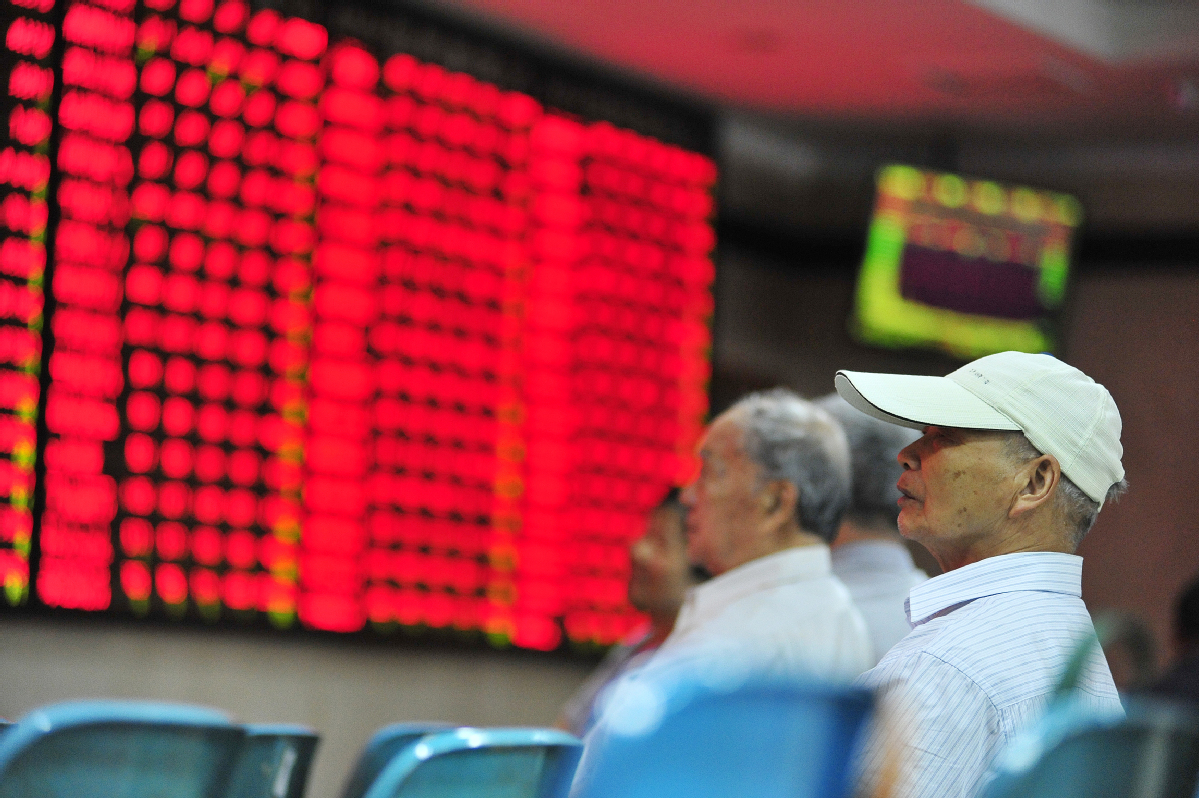'Little giants' present appealing opportunity for patient long-term investors
By Zhou Lanxu | China Daily | Updated: 2021-10-11 09:06

If an investor made an investment about two years ago and had the principal nearly tripled, he or she would probably regard the investment a successful experience and wish that more money was invested.
This is not a hypothesis, but rather something that happened to investors who bought into an exchange-traded fund set up in May 2019 and have held onto it since then.
The ETF was offered by Guotai Asset Management and focused on A-share semiconductor companies, a sector that has been on a fast growth track since China announced in November 2018 to establish the STAR Market in Shanghai to boost scientific and technological innovation.
Now, a similarly appealing investment opportunity may have emerged, especially for patient long-term investors both at home and abroad.
An investment bandwagon has been unfolding after Chinese leader Xi Jinping announced in September the establishment of the Beijing Stock Exchange, which officials said aims to nurture an array of specialized and innovative small and medium-sized enterprises.
Leading innovative SMEs are often called "little giants" and command a high market share. They specialize in niche sectors and boast strong innovative capacity and core technologies. The Ministry of Industry and Information Technology said there are more than 4,700"little giants" so far in China.
Three factors may combine to drive the investment opportunity brought by "little giants": fundamental improvements, policy support and valuation expansion.
It's easy to understand the growth potential of "little giants" when taking into account China's strategic pursuit of addressing the weak links in its industrial chain.
Though having smaller business turnover and less comprehensive capacity than tech giants, the SMEs that rely on specialized and core technologies to survive in niche markets naturally cater to the country's pressing need for redressing "chokepoint" problems in the industrial chain.
The companies' rapid growth speaks for itself. According to Yuekai Securities, profits of the 365 "little giants" in the new third board, an equity trading system also called the National Equities Exchange and Quotations, grew by 26.4 percent in 2020, withstanding the economic disruptions caused by COVID-19.
Policy supports, such as the launch of the BSE, will further catalyze their development. While the STAR Market has facilitated the fundraising of hundreds of leading tech companies, some smaller innovative firms still find themselves lacking capital and too small to meet listing thresholds.
The nation therefore rolled out the Beijing bourse, which has set listing requirements that are friendlier to innovative SMEs. More importantly, it has signaled that more policy tailwinds are in the air.
The expectations over more policy aids will likely boost investors' risk appetite for innovative SMEs, which may go together with improving market liquidity to help the companies obtain higher valuations.
Market observers typically blame the relatively low valuation of NEEQ-traded companies on lukewarm market liquidity, which is in turn attributable to strict investment thresholds.
Even after reform efforts, the NEEQ's Select, Innovation and Base tiers still required individual investors to have at least 1 million yuan ($155,059), 1.5 million yuan and 2 million yuan in securities accounts, respectively, to access NEEQ trading.
The BSE, which has been built based on the Select tier, has halved the threshold to 500,000 yuan, while the threshold for the Innovation tier was lowered to 1 million yuan.
Despite ample reasons to be optimistic, it is bound to be a risky journey to dig returns from SMEs given the uncertainty over their development prospects and the scarcity of real disruptive innovations.
This is why patient long-term investors good at analyzing company fundamentals, and many international institutional investors falling in this category, may become big winners in the investment opportunity catalyzed by the BSE.
It takes thorough research of company fundamentals to hunt for real "little giants" and a long investment horizon to weather the fluctuations in their financial performance.
More opening-up measures to facilitate foreign investments in the BSE can be expected as it gradually matures. The Qualified Foreign Institutional Investor system has allowed foreign investments in the NEEQ, but the Beijing bourse has yet to join the stock connects between mainland and Hong Kong exchanges. This points to room for future improvement.
As Calvin Fu, chief economist at the International Financial Centre Federation, said, stepping up efforts to facilitate international investors' participation in the BSE will share the benefits brought by China's vibrant SME sector with the outside world and help develop the new bourse into a more vibrant, liquid trading venue.























